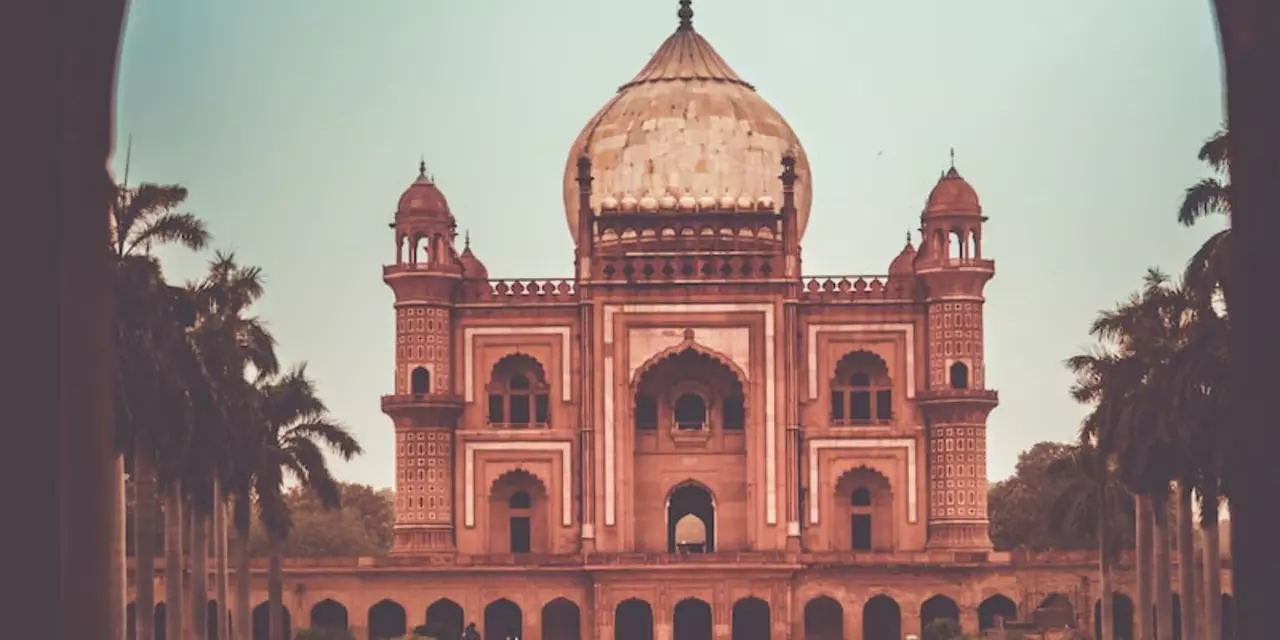Why are Indians hated all over the world?

Unpacking the Prejudices and Stereotypes Surrounding Indian People
India is home to 1.3 billion people, making it one of the most populous countries in the world. Despite its large population and diverse culture, Indians continue to face prejudice, discrimination, and hate all over the world. So why are Indians hated all over the world?The answer is complex and multifaceted. There are a number of factors that contribute to the negative views of Indians held by people outside of India. Unfortunately, many of these biases and prejudices stem from stereotypes and misconceptions about Indian people.
One of the most pervasive stereotypes about Indians is that they are all Hindu and practice Hinduism. This is not true, as there are many Muslims, Christians, Sikhs, Buddhists, and other religious groups living in India. Additionally, many Indians are secular and do not practice any religion at all.
Another common stereotype is that all Indians are poor. While there is a large population of people living in poverty in India, there is also a large number of affluent Indians who have achieved great success in business, politics, and other fields.
Additionally, many people around the world view Indians as being uneducated and lacking in sophistication. This could not be further from the truth, as India is home to some of the world’s most prestigious universities and educational institutions.
Finally, there is a long-standing belief that Indians are untrustworthy and dishonest. While it is true that there are some dishonest people in India, it is unfair to paint the entire population with the same brush.
Overall, it is important to recognize that the prejudices and stereotypes surrounding Indian people are largely unfounded and inaccurate. It is critical that we take steps to combat these negative views, and to promote a more positive and accurate understanding of Indian people and culture.
Examining the Historical Origins of Indian Hatred
India has a long and complicated history that has led to its current reputation as a country that is hated by many around the world. To truly understand why Indians are so disliked, it is important to examine the historical origins of this animosity.One of the main reasons that India has been viewed with such disdain is due to its colonial past. India was colonized by the British for over 200 years, and during this time, the British imposed their own culture and beliefs on the Indian people. This included a strict caste system that left many Indians feeling powerless and oppressed. Additionally, the British enacted oppressive taxation policies, as well as forced labor and other abusive practices. These actions sparked a deep resentment of the British and their rule, which has been passed down through generations.
Another factor that has contributed to the negative attitude towards India is the prevalence of religious violence. India is a predominantly Hindu nation, and the majority of its population identifies as Hindu. However, there are also sizable Muslim and Christian populations, and tensions between these religious communities have led to clashes, sometimes violent, over the years. This has caused some people to view India as a divided and unstable country, contributing to the negative opinion of the nation.
Finally, India’s economic and social issues have also contributed to its poor reputation. India has long been plagued by poverty and inequality, with many of its citizens living in abject poverty. Additionally, India is home to some of the world’s most dangerous cities, and its high crime rate has caused many people to view the country as an unsafe place to visit or live.
For these reasons, India has gained a reputation as a country that is hated by many around the world. While it is important to recognize the historical and contemporary factors that have led to this opinion, it is also important to recognize the positive aspects of Indian culture and society. Through understanding and appreciation, we can work towards breaking down the barriers of hatred and building a more tolerant and respectful global community.
Exploring the Causes of Global Anti-Indian Sentiment
The issue of global anti-Indian sentiment has been a difficult one to grapple with, and the reasons behind it are complex. While some of the animosity is rooted in historical grievances, there are a host of modern factors that can contribute to a negative view of Indians as a whole. From the perception of Indian culture as oppressive to allegations of racism, there are a variety of reasons why Indians are increasingly seen as an unwelcome presence in many parts of the world.One factor that has likely had an impact on global anti-Indian sentiment is the perception of Indian culture as oppressive. India is often associated with the traditional caste system, which can be seen by outsiders as a form of extreme inequality and discrimination. Additionally, the prevalence of arranged marriages, dowry systems, and female genital mutilation are all seen as oppressive practices that contribute to negative views of Indian culture.
Another factor is the perception of Indian people as being overly aggressive and confrontational. This is often a result of the way Indians interact in public settings, where loud voices and aggressive body language can be seen as intimidating and off-putting. This can lead to negative impressions of Indians from people of other cultures who are unaccustomed to such behavior.
Finally, allegations of racism are another factor that has likely had an impact on global anti-Indian sentiment. India has a long history of discrimination against certain ethnic and religious minorities, and this can lead to negative views of Indian people as a whole. Additionally, the Indian government has been accused of enacting oppressive policies against certain minority groups, which can lead to further resentment against Indians.
In conclusion, global anti-Indian sentiment is a complex issue that has a variety of causes. From the perception of Indian culture as oppressive to allegations of racism, there are a number of factors that can contribute to a negative view of Indians as a whole. It is important that Indians understand the causes of global anti-Indian sentiment in order to better address the issue and strive for a more equitable and inclusive world.
Investigating the Impact of Indian Hatred on International Relations
The issue of Indian hatred is one that has been receiving increased attention in recent years, as it has become increasingly clear that the negative views and attitudes towards Indians are having a damaging impact on international relations. As the world becomes increasingly interconnected and interdependent, it is essential that countries are able to coexist peacefully, without prejudice or hostility. Unfortunately, the existence of Indian hatred has made it difficult for countries to develop constructive and mutually beneficial relationships with each other.The most direct way in which Indian hatred affects international relations is through its impact on diplomatic ties. When countries exhibit prejudice and hostility towards each other, it can lead to the breakdown of diplomatic ties and the deterioration of important relationships. This is especially true in the case of India, as many countries have refused to engage in meaningful diplomatic relations with the country due to its history of discrimination against minorities. This has had a damaging effect on India's ability to build strong relationships with other countries, as countries are often unwilling to enter into diplomatic agreements with India due to fears of a hostile response.
Additionally, Indian hatred has had a significant impact on the economic relationships between countries. The negative views and attitudes towards Indians have led to the increased imposition of tariffs and other trade restrictions, which can make it difficult for countries to engage in mutually beneficial economic relationships. This can lead to a decrease in economic growth, as countries are unable to benefit from the resources and products that India has to offer.
Finally, Indian hatred has had an impact on the cultural relationships between countries. The negative views and attitudes towards Indians have led to an increase in xenophobia, as well as a decrease in the acceptance of cultural diversity. This has had a detrimental effect on the ability of countries to engage in meaningful cultural exchanges, which can lead to an increase in misunderstanding and mistrust between different countries.
Overall, Indian hatred has had a damaging impact on international relations, making it difficult for countries to engage in meaningful diplomatic, economic, and cultural relationships. It is essential that countries work together to address the issue of Indian hatred and work towards creating a better understanding and acceptance of the Indian culture and people.

